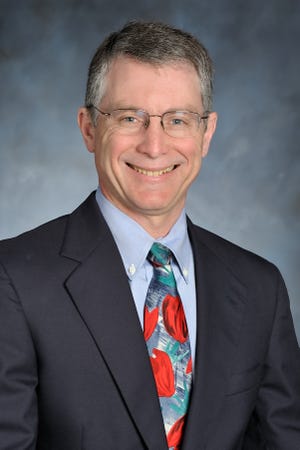Opinion: New health care committee should be persuaded to support Medicaid expansion – Asheville Citizen-Times

Medicaid expansion was included in the 2012 Affordable Care Act by lowering the low-income threshold, but the Supreme Court ruled that each state had the right to decide instead of the federal government. Thirty-eight states and Washington D.C. have expanded Medicaid either through their state legislature or by voter referendum. All six voter-referendums have passed including three Republican states. North Carolina is one of the 12 remaining non-expansion states. The legislature has resisted any attempt to pass Medicaid expansion, in spite of strong support by the governor. The North Carolina state legislature had passed a law that disallows voter referendums blocking attempts by voters to circumvent the legislature. However, 75% of North Carolinians (including a majority of Republicans and Democrats) want to improve the health of low-income persons and expand Medicaid according to a 2020 poll. That being the case, there is a path going forward by either persuading the legislature to move ahead with Medicaid expansion or replacing them with representatives who will listen to their constituents.
Marginalized groups with poor health care access, such as low socioeconomic groups, have worse health outcomes, early mortality, and health disparities, but improving health care access can lessen health inequities. Consequently, in 1965, the U.S. Congress passed the Medicaid program to provide no-cost health insurance to low-income people including children, family members, and disabled persons.
Medicaid is an essential part of the health care safety net and has provided health care access to many people who lost their jobs and health insurance as a result of the COVID-19 pandemic. The program currently covers over two million people in North Carolina yet more than one million people, representing 12.9% of the population, do not have health insurance, including 30,000 Buncombe County residents. However, it is very difficult for low-income working adults without children to qualify for coverage. Therefore, expanding Medicaid extends coverage to this group.
Opinion:Affordable housing solutions require collaborative, creative mindset
Opinion:Benevolence for Afghan refugees should be inspiration for all Americans
According to a recent University of Michigan study, states that have expanded Medicaid enrollment have improved the physical and financial health for low-income persons, including better health, increased life expectancy and lower debt; have reduced uncompensated care; and have stimulated the economy and created jobs. Nevertheless, the state legislature has not heeded these findings. Accordingly, these are strong arguments for Medicaid expansion in North Carolina.
The Republican-dominated North Carolina state legislature has recently formed a committee to study Medicaid expansion and access to health care as required by the 2022 state budget that was signed by Governor Roy Cooper, a Democrat. Previous budgets had been vetoed by the governor because they did not include expanding Medicaid coverage. It has been estimated that hundreds of thousands of uninsured adults in North Carolina will be able to obtain access to medical care with Medicaid expansion.
Republicans are generally opposed to expanding Medicaid for fear of rising taxes and bankrupting the state although the costs of expansion have been shown to be covered by health programs, like correctional health care and community mental health, because their users would gain coverage. The U.S. Congress has voted to defray each state’s cost for Medicaid expansion by 90%. North Carolina state hospitals and health care systems have agreed to provide funds to help cover some of the state’s share.
The Joint Legislative Committee on Access to Healthcare and Medicaid Expansion is composed of six Republicans and three Democrats: Donny Lambeth (co-chairman, R-75th district), Larry Potts (vice chairman, R-81st district), Kristin Baker (R-82nd district), Wayne Sasser (R-67th district), Donna White (R-26th district), Keith Kidwell (R-79th district), William Richardson (D-44th district), Brian Farkas (D-9th district), and Charles Graham (D-47th district). House Speaker Tim Moore (R-11th district) said that members of the committee “will thoroughly investigate the healthcare needs in our state and explore all options to improve upon the state of healthcare in North Carolina.”
Now is the time for a grassroots effort to remind our representatives that a strong bipartisan majority of North Carolinians want to expand Medicaid to improve the physical and financial health of low-income persons. A call to action should include letters and phone calls to the representatives on the committee and to your district representatives and senators. Consider joining an organization that supports expanding access to health care. Without the ability to have a voter referendum in North Carolina, the will of the people may be temporarily stalled. Therefore, it is of the upmost importance for everyone to persuade each member of the committee to support Medicaid expansion or to vote for representatives that do.
Richard Needleman is a retired orthopedic surgeon and a member of Doctors for America.




